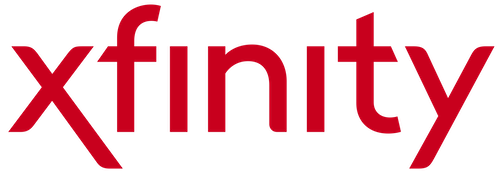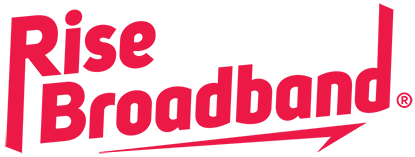Internet Providers
Explore trusted internet providers across the U.S. Compare speeds, coverage, and connection types to find a reliable service for your home or business.
The Internet Providers We Trust After All the Testing
We spent hours digging into real-world speed tests, uptime records, and customer feedback to separate marketing claims from everyday performance. This shortlist highlights internet providers that consistently deliver solid speeds, stable connections, and responsive support—whether you’re streaming 4K, jumping on daily video calls, gaming online, or running a smart home.
Because every address is different, we also checked how each network invests in upgrades and where its coverage is growing. You’ll find dependable options across fiber, cable, 5G home internet, fixed wireless, and satellite. Compare typical download and upload speeds, latency, data policies, and equipment features (Wi-Fi 6/6E) to pick the provider that fits your home or business today—and won’t hold you back tomorrow.
Providers we’d choose ourselves after comparing speeds, uptime, and support.
Which internet providers are actually cheapest?
Looking for the cheapest internet providers? Start by checking address-level availability and entry-tier plans. Compare starting prices, included equipment, upload speeds, and data policies to avoid hidden costs. Deals vary, but 5G home internet, fiber, cable, and fixed wireless often offer value when paired with AutoPay discounts and customer support.
Here are our recommended cheapest internet providers—handpicked after testing, real-world checks, and independent research.
Verizon 5G Home Internet

Plan start at
$35/mo
With autopay
Speed up to
100 Mbps
Available States
Nationwide
1-800-VERIZON
View PlansT-Mobile 5G Home Internet

Plan start at
$30/mo
With autopay
Speed up to
400 Mbps
Available States
Nationwide
844-839-5057
View PlansSpectrum Internet Assist

Plan start at
$25/mo
Speed up to
100 Mbps
Available States
42+
855-860-9068
View PlansXfinity NOW Internet

Plan start at
$30/mo
With prepaid
Speed up to
200 Mbps
Available States
40+
800-934-6489
View PlansAT&T Internet Air

Plan start at
$47/mo
With autopay
Speed up to
300 Mbps
Available States
Nationwide
800-288-2020
View PlansSparklight Lift

Plan start at
$29.95/mo
Speed up to
200 Mbps
Available States
23
877-692-2253
View PlansCox StraightUp Internet

Plan start at
$50/mo
With prepaid
Speed up to
100 Mbps
Available States
19+
800-234-3993
View PlansDisclaimer: “Cheapest” varies by address, plan, promos, and requirements (AutoPay, equipment, eligibility). Always verify final price at checkout.
Which provider offer the fastest internet speed?
If absolute speed is your priority, multi-gig fiber leads the pack—thanks to symmetrical uploads, low latency, and rock-solid consistency for 4K streaming, cloud gaming, and heavy backups. In some markets, upgraded cable (DOCSIS 4.0) approaches multi-gig downloads, but uploads still trail fiber. Always check address-level availability and look for 2–10 Gbps tiers first.
These are the providers that topped our speed tests—vetted through multi-gig trials, latency checks, and real-world performance data.
Verizon Fios

Plan start at
$34.99/mo
Speed up to
2 Gbps
Available States
9+
1-800-VERIZON
View PlansFrontier Fiber

Plan start at
$29.99/mo
Speed up to
7 Gbps
Available States
20+
800-921-8101
View PlansDisclaimer: Top speeds, pricing, and coverage are location-specific and change frequently. Confirm details on the provider’s checkout page before ordering.
Which business internet provider is best?
For most offices, the “best” business internet means low downtime, strong upload speeds, static-IP options, and responsive support. Fiber is ideal for video meetings, POS, VoIP, cloud backups, and VPN. When fiber isn’t available, upgraded cable or 5G business internet can fill the gap—just confirm address-level availability and SLA options.
AT&T Business Fiber

Plan start at
$40/mo
Speed up to
5 Gig
Available States
21
800-321-2000
View PlansComcast Business

Plan start at
$49.99/mo
Speed up to
1.25 Gbps
Available States
40+
866-519-2313
View PlansSpectrum Business

Plan start at
$65/mo
Speed up to
1 Gig
Available States
41
844-493-4458
View PlansVerizon Business Internet (5G)

Plan start at
$64/mo
Speed up to
400 Mbps
Available States
Nationwide
800-837-4966
View PlansFrontier Business (Fiber)

Plan start at
$119.99/mo
Speed up to
7 Gig
Available States
25
800-921-8102
View PlansQuantum Fiber Business

Plan start at
$65/mo
Speed up to
2 Gig
Available States
17
888-872-9476
View PlansKinetic Business Internet

Plan start at
$99.99/mo
Speed up to
1 Gig
Available States
18
855-439-2889
View Plans*Prices shown are starting or promotional figures where providers publish them; many business tiers are quote-based and can include equipment, static-IP, or SLA add-ons.
Disclaimer: Availability, speeds, SLAs, and pricing vary by location and change frequently. Confirm the final quote, contract term, and install timeline for your exact address.
Which internet provider is best for gaming at home?
For smooth, low-latency gaming, fiber is king thanks to stable pings and symmetrical uploads for voice chat and livestreams. In areas without fiber, upgraded cable or reliable 5G home internet can still deliver solid play—just prioritize low ping, consistent jitter, and wired (Ethernet) connections over raw download numbers.
Frontier Fiber

Plan start at
$29.99/mo
Speed up to
7 Gig
Available States
20+
800-921-8101
View PlansXfinity Internet

Plan start at
$55/mo
With prepaid
Speed up to
1.2 Gig
Available States
40+
800-934-6489
View Plans*Prices are typical “from” rates before taxes/fees and may require AutoPay. Availability and multi-gig tiers are location-specific.
Disclaimer: Low latency and jitter matter more than download speed. Speeds, prices, and coverage vary by address—confirm at checkout; use Ethernet for competitive play.
How to Choose the Right Internet Provider That Actually Works
Choosing an internet provider starts with your address. Coverage and speed can change from one block to the next. If fiber is available, it’s usually the most stable and the fastest. Cable is a strong backup with wide reach and high download speeds. 5G home internet is easy to set up and great for renters, but signal quality matters.
Satellite reaches places nothing else can. Newer low-orbit systems feel quicker than older satellite tech. Still, weather and data limits can affect the experience. Fixed wireless in rural areas also depends on line-of-sight and nearby tower load. Always check how each option performs where you live.
What to check before you sign up
Match speed to your real life. Light streaming and browsing often feel fine at 100–300 Mbps. Many devices, 4K streaming, or large uploads work better at 500 Mbps or higher. For gaming and calls, latency and jitter matter as much as raw speed.
Look closely at upload speed. It affects video calls, cloud sync, and sharing files. Check data caps, fair-use rules, and whether equipment is included. If there’s a trial window, test at peak hours and in the rooms you use most. Ask neighbors how the service holds up.
Your gear matters, too. A Wi-Fi 6 or 6E router can boost coverage and reduce congestion. Use Ethernet for important work or competitive games. If your home is large, consider a mesh system. Small tweaks—like moving the gateway higher—can also help.
Make the right choice with confidence
Start with availability from trusted providers in your area. Compare fiber, cable, 5G home internet, fixed wireless, and satellite side by side. Focus on steady performance over flashy numbers. Balance price, speed, and support with how you actually work, stream, and play.
If you host lots of meetings, pick strong upload and low latency. Big households and 4K streamers benefit from higher tiers. Gamers should favor fiber or low-latency cable and plug in when possible. Keep a simple backup plan—like a mobile hotspot—in case you need it.
Before you order, read the fine print. Confirm taxes, fees, and any data limits. Check support hours and response times. With a quick local check and the right hardware, you’ll land on an internet plan that stays fast, stable, and stress-free.
Frequently Asked Questions
Most homes feel good at 100–300 Mbps. If you stream in 4K, game, or have many devices, aim for 500 Mbps–1 Gbps.
Usually yes. Fiber brings low latency and fast uploads, which help with video calls, cloud backups, and gaming.
Sometimes. It’s easy to set up and fast in strong signal areas, but speeds can dip with congestion or poor placement.
Ping (latency) and jitter matter more than raw download. Use Ethernet when possible for a smoother experience.
Move the router higher and central, switch to Wi-Fi 6/6E, and consider a mesh system for larger homes.
Download is receiving data (streaming, browsing). Upload is sending data (video calls, posting files); it’s key for work and creators.
Heavy streamers, large families, or remote workers benefit from unlimited. Light users may be fine with a cap if they watch usage.
That’s network congestion. A higher-tier plan, wired connections, or switching providers/technologies can help.
Renting is simple but adds a monthly fee. Buying a solid Wi-Fi 6/6E router can pay off over time.
Use each provider’s address checker during checkout. Neighbors’ reviews and local forums also reveal real-world performance.











